Feeling Just Why We Make Music
It’s 6:30 p.m. on a Tuesday. Students from various programmes are welcomed to the mdw’s Clara Schumann-Saal by Miriam Steinkühler-Fuchsberger, a member of the ipop – Department of Popular Music faculty. Her mission today, like on many Tuesdays past: to unleash students’ passion for singing together despite any tiredness after their day’s work at the University. mdw Magazine sat in on one of their rehearsals.
Singing in the ipopChoir balances things out for me and is often the highlight of my week. You can learn something in an agreeable atmosphere and let out your emotions as you sing.
Chiara Grabherr, Voice (Pop) major in the Music Education programme
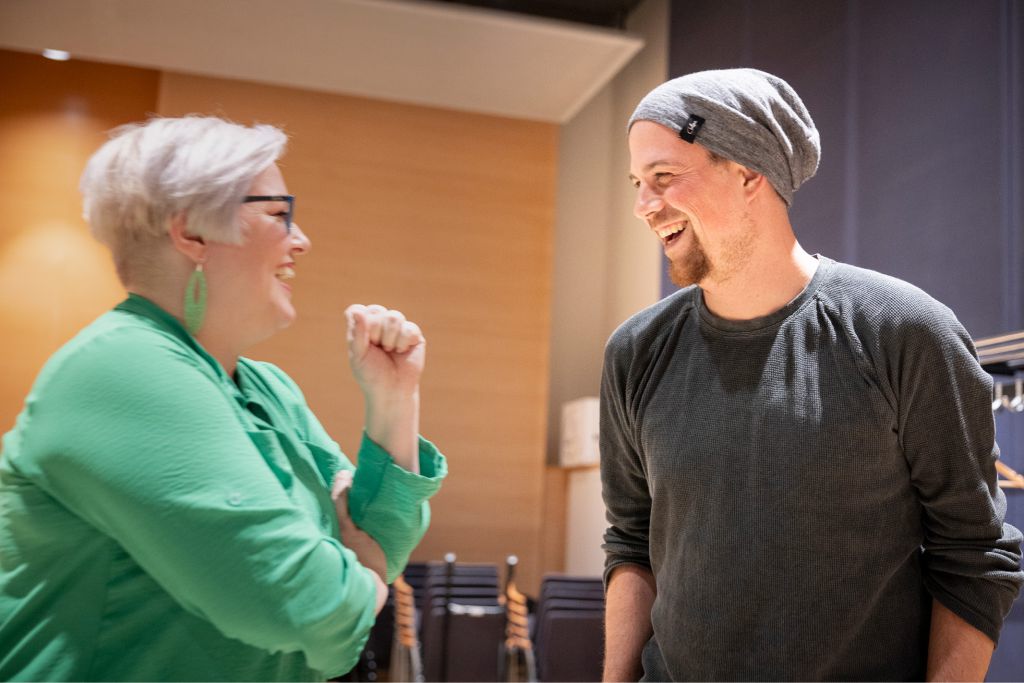
The ipopChoir is open to mdw students from all programmes of study as an elective course. The initial idea for this ensemble came from ipop faculty member Patricia Simpson. Together with Philipp Sageder, who likewise teaches at ipop, Simpson sought out students who were interested in choral singing. There were no marks given at first, and the choir was in part led by students under Simpson and Sageder’s supervision. The format’s success soon became apparent, not least in the performances that ensued, and the ipopChoir was ultimately made a full-fledged course. The winter semester of 2018/19 saw faculty members Miriam Steinkühler-Fuchsberger and Patrik Thurner assume leadership.
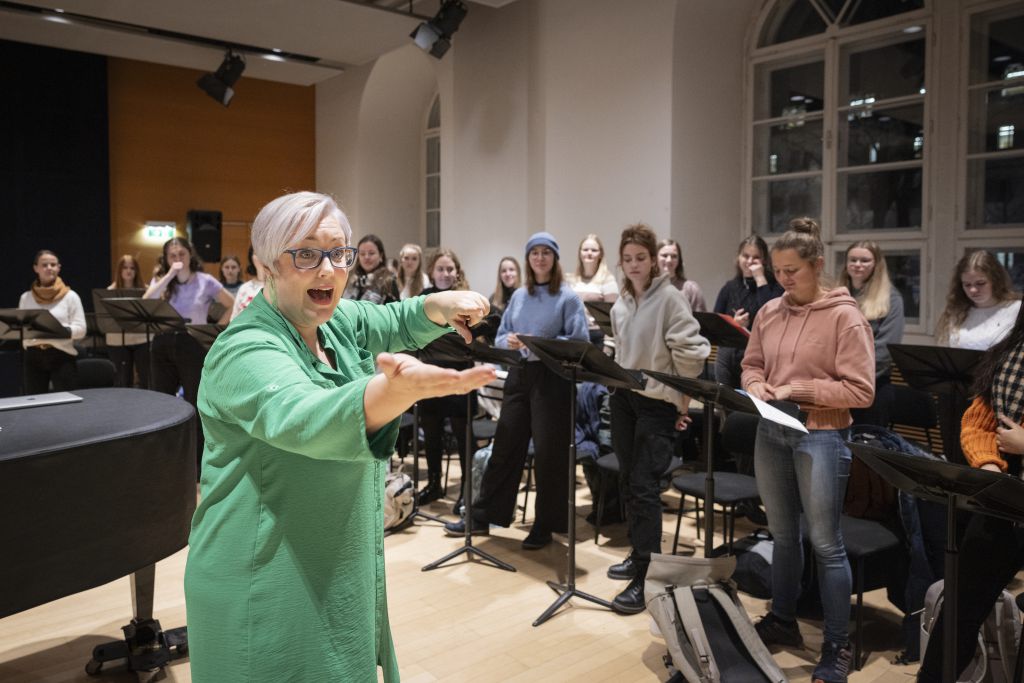
For the current academic year, Steinkühler-Fuchsberger is alone at the helm with Thurner taking a temporary break due to a lack of time. Nonetheless, the two affirm how beneficial teaching together has been. “Team teaching has taught me quite a bit, and together, we’ve helped the choir to advance on multiple levels,” says Thurner. “It’s inspiring, and you complement and support each other. One of us plays piano while the other conducts—which puts us in an even better position to motivate the students, says Steinkühler-Fuchsberger.
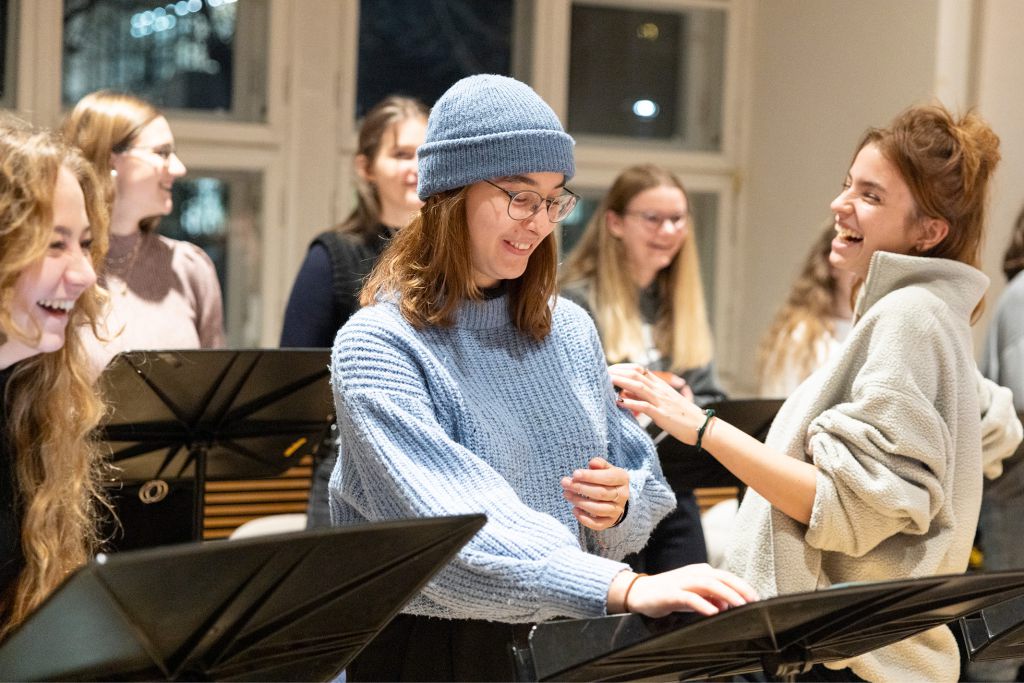
The rehearsal begins with some warm-ups. Stretching, twisting to the left and the right, and chewing motions serve to get the participants’ bodies and mouths moving. Leader Steinkühler-Fuchsberger then starts playing notes on the piano and giving instructions. The choir responds by singing the notes first with a bored air, then with enthusiasm. “You notice how the sound changes?” she asks. The sound of the “enthusiastic” variant is what will be needed next, when they turn to the song “Uptown Funk”. “I know you’ve got it in you—I’ve just got to coax it out,” Steinkühler-Fuchsberger calls out to her charges. The students testify to their choir leader’s energy: “She manages to really push people and sweep all of us along,” affirms Maximilian Mendler, a percussionist focusing on popular music in the Music Education for Instruments and Voice programme. “When the students truly have fun with a song, it lets them feel just why they make music,” says Steinkühler-Fuchsberger, “and that rewards me for my efforts.” She and Thurner have also already tried out their own arrangements with the choir—creative contributions for which the students show great appreciation.
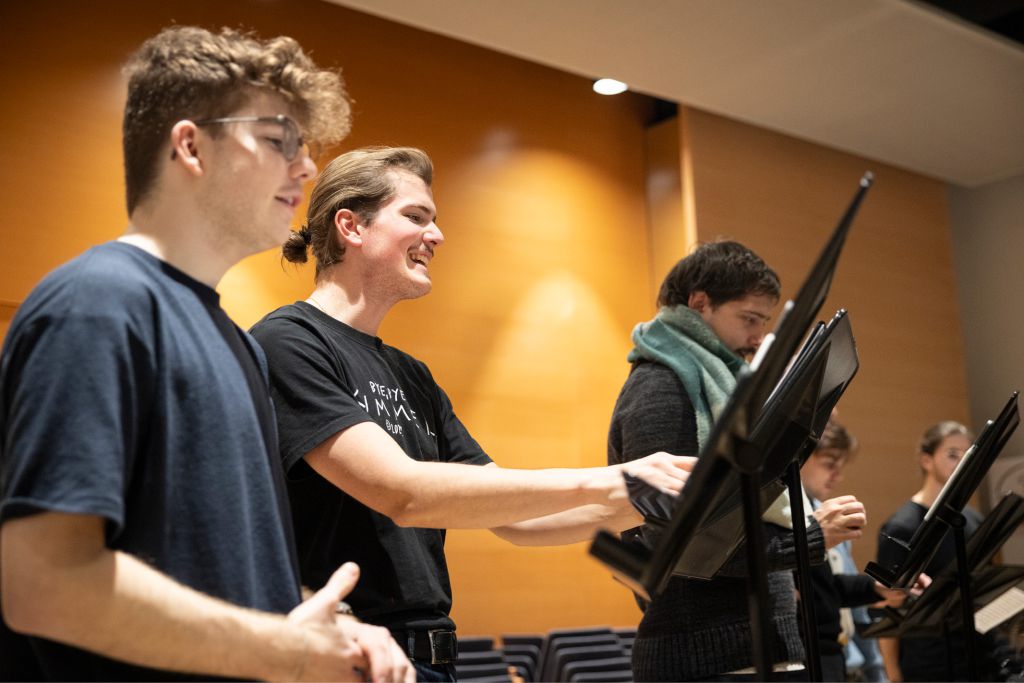
Enriching for everyone was also “The Arrangers’ Project”, which ran during the 2023 summer semester. With feedback from the choir directors, students wrote or arranged songs and then rehearsed them with the choir. “The concert with music by students for students was unbelievable. Preparing those pieces took a ton of work, but the participants learned a lot,” Thurner recalls. Such learnings are joined by opportunities to network. “The ipopChoir is a great opportunity to make contact with people from outside your own department,” says Tonmeister student Amelie Späth, who—as a jazz and pop enthusiast—is looking to focus on pop music even as she begins her studies.
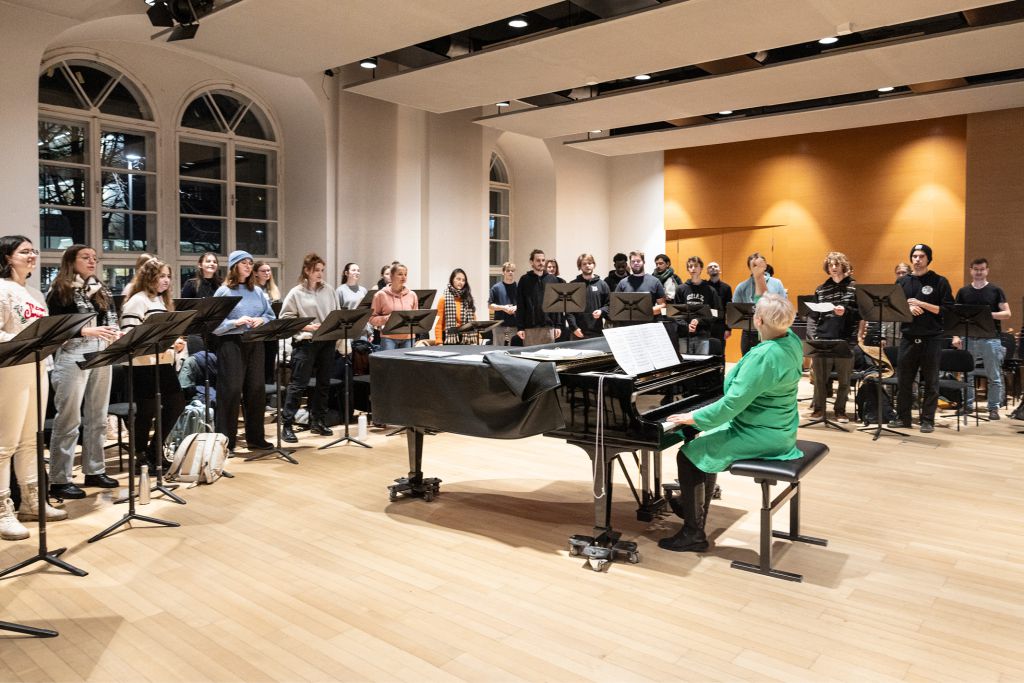
Maximilian Mendler emphasises how “singing in the choir means being part of a single harmonious fabric. It’s only if everyone pulls their own weight that things turn out well, so we all bear responsibility.” For instrumentalists like Mendler, having the ability to sing and a feel for the voice is essential. Chiara Grabherr, who also sings in other vocal ensembles, points out that “in the ipopChoir, everyone’s really present and enthusiastic—and we become a unified whole.”
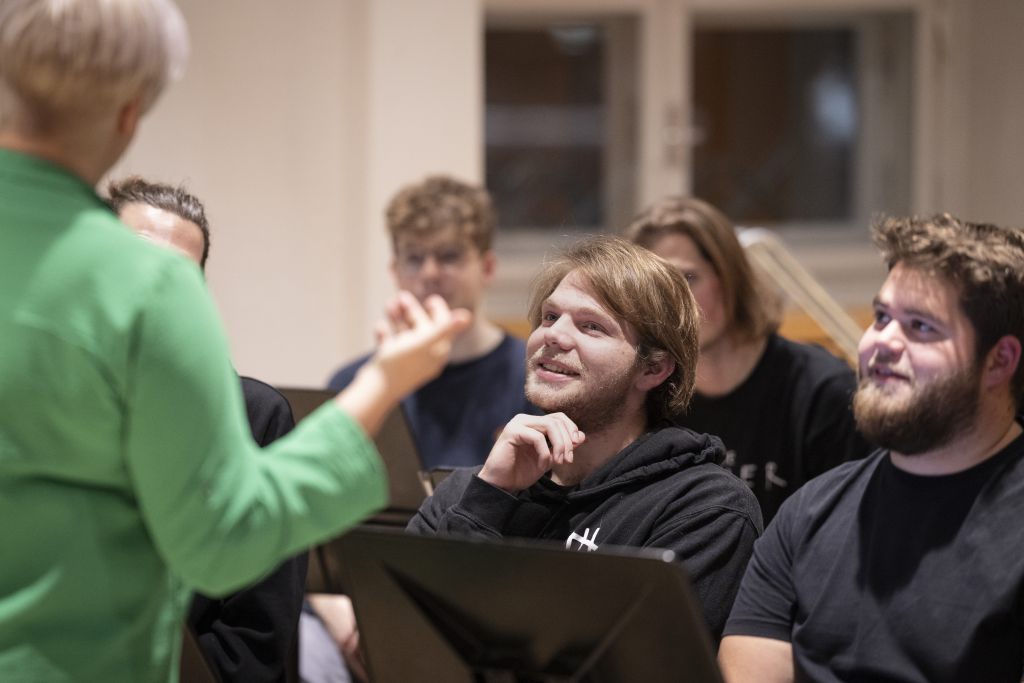
As for the choir’s further development, its leaders are now looking to establish a second formation within the larger group. “We have students who’d like to work with even more intensity and refine our pieces and our sound,” says Thurner, who adds that if the choir’s work can be deepened and sustained, even tours and competition entries might be feasible.
A buoyant mood prevails as the rehearsal draws to a close. In “Uptown Funk”, which concludes with a loud “Bow!” the singers once again give their all. “Yeah!” exclaims their happy teacher, “Did you feel that?!”—and bids farewell to the group until next Tuesday.

